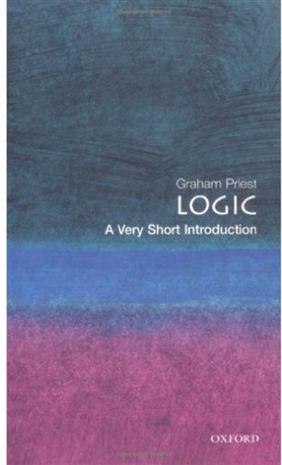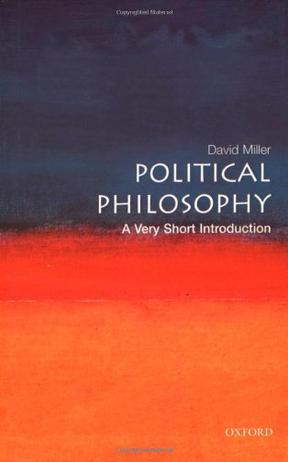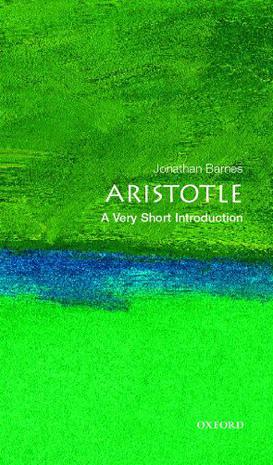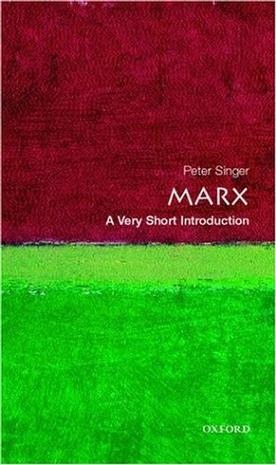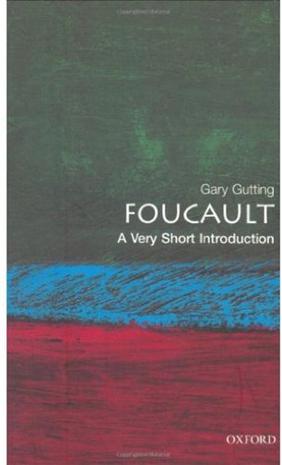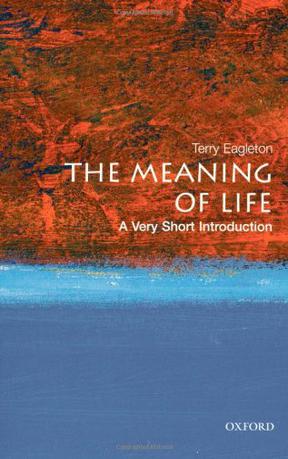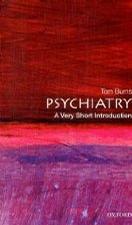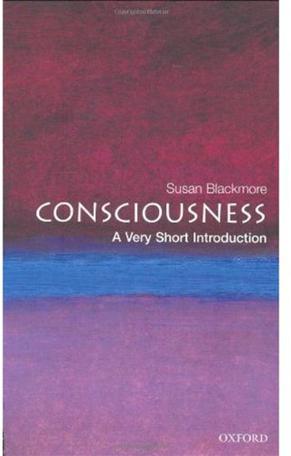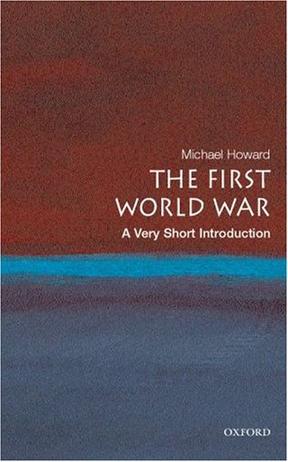欢迎来到相识电子书!
标签:VSI
-
Logic
Logic is often perceived as having little to do with the rest of philosophy, and even less to do with real life. In this lively and accessible introduction, Graham Priest shows how wrong this conception is. He explores the philosophical roots of the subject, explaining how modern formal logic deals with issues ranging from the existence of God and the reality of time to paradoxes of probability and decision theory. Along the way, the basics of formal logic are explained in simple, non-technical terms, showing that logic is a powerful and exciting part of modern philosophy. -
Political Philosophy
This book introduces readers to the concepts of political philosophy. It starts by explaining why the subject is important and how it tackles basic ethical questions such as 'how should we live together in society?' It looks at political authority, the reasons why we need politics at all, the limitations of politics, and whether there are areas of life that shouldn't be governed by politics. It explores the connections between political authority and justice, a constant theme in political philosophy, and the ways in which social justice can be used to regulate rather than destroy a market economy. David Miller discusses why nations are the natural units of government and whether the rise of multiculturalism and transnational co-operation will change this: will we ever see the formation of a world government? -
Aristotle
The influence of Aristotle, the prince of philosophers, on the intellectual history of the West is second to none. In this book Jonathan Barnes examines Aristotle's scientific researches, his discoveries in logic and his metaphysical theories, his work in psychology and in ethics and politics, and his ideas about art and poetry, placing his teachings in their historical context. -
Wittgenstein
Ludwig Wittgenstein (1889-1951) was an extraordinarily original thinker, whose influence on twentieth-century thinking far outside the bounds of philosophy alone. In this engaging Introduction, A.C. Grayling makes Wittgenstein's thought accessible to the general reader by explaining the natureand impact of Wittgenstein's views. He describes both his early and later philosophy, the differences and connections between them, and gives a fresh assessment of Wittgenstein's continuing influence on contemporary thought. -
Marx
Peter Singer identifies the central vision that unifies Marx's thought, enabling us to grasp Marx's views as a whole. He sees him as a philosopher primarily concerned with human freedom, rather than as an economist or a social scientist. He explains alienation, historical materialism, the economic theory of Capital, and Marx's ideas of communism, in plain English, and concludes with an assessment of Marx's legacy. -
Philosophy
How ought we to live? What really exists? How do we know? This book introduces important themes in ethics, knowledge, and the self, via readings from Plato, Hume, Descartes, Hegel, Darwin, and Buddhist writers. It emphasizes throughout the point of doing philosophy, explains how different areas of philosophy are related, and explores the contexts in which philosophy was and is done. -
Foucault
Foucault is one of those rare philosophers who has become a cult figure. Born in 1926 in France, over the course of his life he dabbled in drugs, politics, and the Paris SM scene, all whilst striving to understand the deep concepts of identity, knowledge, and power. From aesthetics to the penal system; from madness and civilisation to avant-garde literature, Foucault was happy to reject old models of thinking and replace them with versions that are still widely debated today. A major influence on Queer Theory and gender studies (he was openly gay and died of an AIDS-related illness in 1984), he also wrote on architecture, history, law, medicine, literature, politics and of course philosophy, and even managed a best-seller in France on a book dedicated to the history of systems of thought. Because of the complexity of his arguments, people trying to come to terms with his work have desperately sought introductory material that makes his theories clear and accessible for the beginner. Ideally suited for the Very Short Introductions series, Gary Gutting presents a comprehensive but non-systematic treatment of some highlights of Foucault's life and thought. Beginning with a brief biography to set the social and political stage, he then tackles Foucault's thoughts on literature, in particular the avant-garde scene; his philosophical and historical work; his treatment of knowledge and power in modern society; and his thoughts on sexuality. -
Philosophy of Science
What is science? Is there a real difference between science and myth? Is science objective? Can science explain everything? This Very Short Introduction provides a concise overview of the main themes of contemporary philosophy of science. Beginning with a short history of science to set the scene, Samir Okasha goes on to investigate the nature of scientific reasoning, scientific explanation, revolutions in science, and theories such as realism and anti-realism. He also looks at philosophical issues in particular sciences, including the problem of classification in biology, and the nature of space and time in physics. The final chapter touches on the conflicts between science and religion, and explores whether science is ultimately a good thing. -
The Meaning of Life
'Philosophers have an infuriating habit of analysing questions rather than answering them', writes Terry Eagleton, who, in these pages, asks the most important question any of us ever ask, and attempts to answer it. So what is the meaning of life? In this witty, spirited, and stimulating inquiry, Eagleton shows how centuries of thinkers - from Shakespeare and Schopenhauer to Marx, Sartre and Beckett - have tackled the question. Refusing to settle for the bland and boring, Eagleton reveals with a mixture of humour and intellectual rigour how the question has become particularly problematic in modern times. Instead of addressing it head-on, we take refuge from the feelings of 'meaninglessness' in our lives by filling them with a multitude of different things: from football and sex, to New Age religions and fundamentalism. 'Many of the readers of this book are likely to be as sceptical of the phrase "the meaning of life" as they are of Santa Claus', he writes. But Eagleton contends that in a world where we need to find common meanings, it is important that we set about answering the question of all questions; and, in conclusion, he suggests his own answer. -
Psychiatry
Psychiatry is now a highly visible activity - care in the community, compulsion, suicide, drug and alcohol abuse mean that few people are not touched by it. Indeed one in four of us will consult a psychiatrist in our life time. This book explains what psychiatry is, and what it is not. It starts with the identification of the major mental illnesses and why they are no longer considered just variations of 'normality'. It charts the rise of the Asylum and its demise with the developments of Care in the Community, and the flourishing of psychoanalysis and its later transformation into more accessible psychotherapies. More than any other branch of medicine psychiatry has been attacked and criticised. There is a long catalogue of abuses - from mundane neglect and bizarre treatments through to political abuse by totalitarian regimes. Modern psychiatry too brings with it new controversies such as the medicalization of normal life, the power of the drug companies and the use of psychiatry as an agent of social control.The book does not shy away from outlining these issues but provides the reader with a clear understanding of what psychiatry is capable of, and what it is not capable of, so that they can draw their own conclusions. -
Intelligence
People value their powers of thinking and most of us are interested in why some people seem to drive a highly tuned Rolls Royce brain while others potter along with a merely serviceable Ford Fiesta. This Very Short Introduction describes what psychologists have discovered about how and why people differ in their thinking powers. The book takes readers from no knowledge about the science of human intelligence to a stage where they are able to make judgements for themselves about some of the key questions about human mental ability differences. Each chapter deals with a central issue that is both scientifically lively and of considerable general interest, and is structured around a diagram which is explained in the course of the chapter. The issues discussed include whether there are several different types of intelligence, whether intelligence differences are caused by genes or the environment, the biological basis of intelligence differences, and whether intelligence declines or increases as we grow older. -
Dreaming
What is dreaming, and what causes it? Why are dreams so strange and why are they so hard to remember? Replacing dream mystique with modern dream science, J. Allan Hobson provides a new and increasingly complete picture of how dreaming is created by the brain. Focusing on dreaming to explain the mechanisms of sleep, this book explores how the new science of dreaming is affecting theories in psychoanalysis, and how it is helping our understanding of the causes of mental illness. J. Allan Hobson investigates his own dreams to illustrate and explain some of the fascinating discoveries of modern sleep science, while challenging some of the traditionally accepted theories about the meaning of dreams. He reveals how dreaming maintains and develops the mind, why we go crazy in our dreams in order to avoid doing so when we are awake, and why sleep is not just good for health but essential for life. -
Autism
What causes autism? Is it a genetic disorder, or due to some unknown environmental hazard? Are we facing an autism epidemic? What are the main symptoms, and how does it relate to Asperger syndrome? Everyone has heard of autism, but the disorder itself is little understood. It has captured the public imagination through films and novels portraying individuals with baffling combinations of disability and extraordinary talent, and yet the reality is more often that it places a heavy burden on sufferers and their families. This Very Short Introduction offers a clear statement on what is currently known about autism and Asperger syndrome. Explaining the vast array of different conditions that hide behind these two labels, and looking at symptoms from the full spectrum of autistic disorders, it explores the possible causes for the apparent rise in autism and also evaluates the links with neuroscience, psychology, brain development, genetics, and environmental causes including MMR and Thimerosal. This short, authoritative, and accessible book also explores the psychology behind social impairment and savantism, and throughout, sheds light on what it is like to live inside the mind of the sufferer. -
Emotion
Was love invented by European poets in the Middle Ages or is it part of human nature? Will winning the lottery really make you happy? Is it possible to build robots that have feelings? These are just some of the intriguing questions explored in this guide to the latest thinking about the emotions. Drawing on a wide range of scientific research, from anthropology and psychology to neuroscience and artificial intelligence, "Emotion: The Science of Sentiment" takes the reader on a fascinating journey into the human heart. -
Memory
Why do we remember events from our childhood as if they happened yesterday, but not what we did last week? Why does our memory seem to work well sometimes and not others? What happens when it goes wrong? Can memory be improved or manipulated, by psychological techniques or even 'brain implants'? How does memory grow and change as we age? And what of so-called 'recovered' memories? This book brings together the latest research in neuroscience and psychology, and weaves in case-studies, anecdotes, and even literature and philosophy, to address these and many other important questions about the science of memory - how it works, and why we can't live without it. -
Consciousness
Consciousness, 'the last great mystery for science', has now become a hot topic. How can a physical brain create our experience of the world? What creates our identity? Do we really have free will? Could consciousness itself be an illusion? Exciting new developments in brain science are opening up debates on these issues, and the field has now expanded to include biologists, neuroscientists, psychologists, and philosophers. This controversial book clarifies the potentially confusing arguments, and the major theories using illustrations, lively cartoons, and experiments. Topics include vision and attention, theories of self and will, experiments on action and awareness, altered states of consciousness, and the effects of brain damage and drugs. -
Postcolonialism
This innovative and lively book is quite unlike any other introduction to postcolonialism. Robert Young examines the political, social, and cultural after-effects of decolonization by presenting situations, experiences, and testimony rather than going through the theory at an abstract level. He situates the debate in a wide cultural context, discussing its importance as an historical condition, with examples such as the status of aboriginal people, of those dispossessed from their land, Algerian rai music, postcolonial feminism, and global social and ecological movements. Above all, Young argues, postcolonialism offers a political philosophy of activism that contests the current situation of global inequality, and so in a new way continues the anti-colonial struggles of the past. -
Art History
This clear and concise new introduction examines all the major debates and issues using a wide range of well-known examples. It discusses the challenge of using verbal and written language to analyse a visual form. Dana Arnold also examines the many different ways of writing about art, and the changing boundaries of the subject of art history. Topics covered include the canon of Art History, the role of the gallery, 'blockbuster' exhibitions, the emergence of social histories of art (Feminist Art History or Queer Art History, for example), the impact of photography, and the development of Art History using artefacts such as the altarpiece, the portrait, or pornography, to explore social and cultural issues such as consumption, taste, religion, and politics. Importantly, this book explains how the traditional emphasis on periods and styles originates in western art production and can obscure other critical approaches, as well as art from non western cultures. -
Capitalism
This Introduction explores the origins of capitalism and questions whether it did indeed originate in Europe. It examines a distinctive stage in the development of capitalism that began in the 1980s, in order to understand where we are now and how capitalism has evolved since. The book discusses the crisis tendencies of capitalism--including the S.E. Asian banking crisis, the collapse of the Russian economy, and the 1997-1998 global financial crisis--asking whether capitalism is doomed to fail. In the end, the author ruminates on a possible alternative to capitalism, discussing socialism, communal and cooperative experiments, and alternatives proposed by environmentalists. -
The First World War
By the time the First World War ended in 1918, eight million people had died in what had been perhaps the most apocalyptic episode the world had known. This Very Short Introduction provides a concise and insightful history of the 'Great War', focusing on why it happened, how it was fought, and why it had the consequences it did. It examines the state of Europe in 1914 and the outbreak of war; the onset of attrition and crisis; the role of the US; the collapse of Russia; and the weakening and eventual surrender of the Central Powers. Looking at the historical controversies surrounding the causes and conduct of war, Michael Howard also describes how peace was ultimately made, and the potent legacy of resentment left to Germany.
热门标签
下载排行榜
- 1 梦的解析:最佳译本
- 2 李鸿章全传
- 3 淡定的智慧
- 4 心理操控术
- 5 哈佛口才课
- 6 俗世奇人
- 7 日瓦戈医生
- 8 笑死你的逻辑学
- 9 历史老师没教过的历史
- 10 1分钟和陌生人成为朋友

